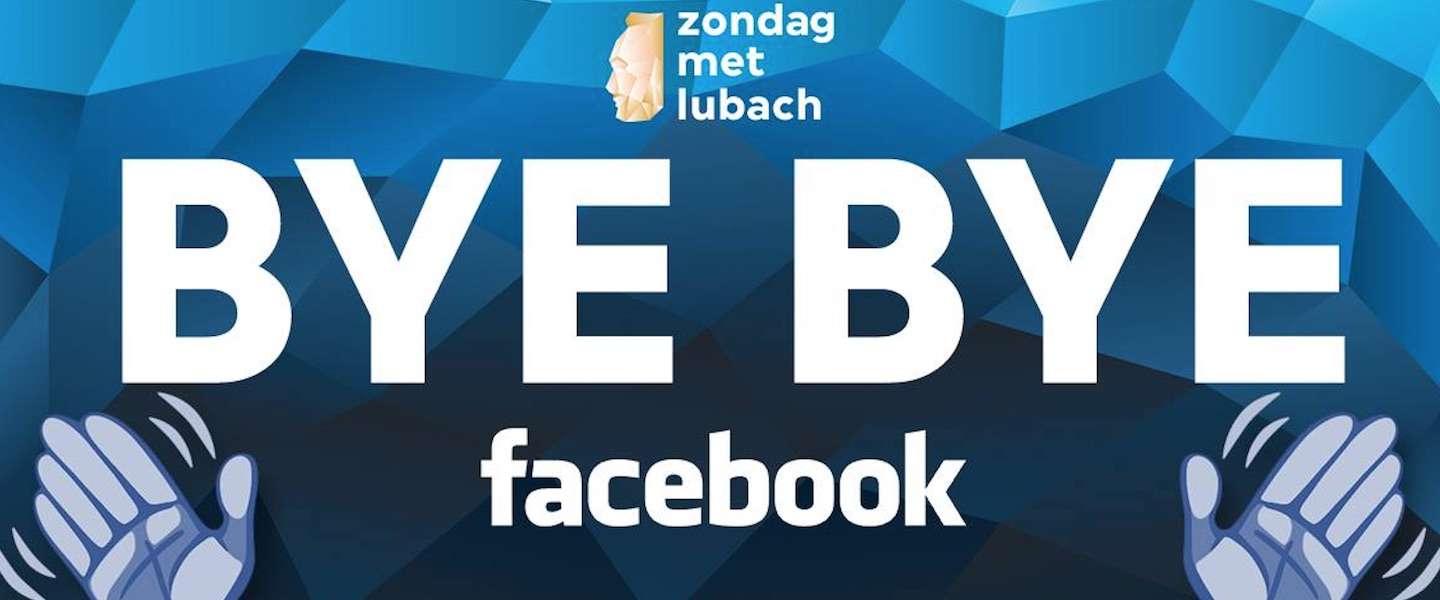Comedy, journalism, or social activism?
By Heleen Heijungs
Last Sunday night, Dutch comedian Arjen Lubach launched a campaign against Facebook, urging users to deactivate their accounts [1]. Over 29,000 Facebook users have said they will participate in the event, with another 73,000 indicating they are ‘interested’.
In a similar call for action in October 2017, Lubach dedicated part of his show to the proposed referendum about what is commonly known as the ‘sleepwet’: a new Dutch law to change the rules on data collection for security purposes. Lubach opposed this law, and asked his viewers to sign a petition calling for a referendum on the issue [2]. Thanks to his efforts, the petition reached the required threshold of 300,000 signatures for organizing such a referendum. The referendum was held on March 21st. Without Lubach’s efforts; the referendum on the sleepwet would arguably not have taken place.
Lubach is not a journalist – or at least does not present himself as one. As such, his show is not held to the same scrutiny as a news program – it is ‘just comedy’. And yet, his words have shaped the opinions of many. Lubach has even gone beyond informing, explicitly calling for action several times.
But the picture he presents is quite one-sided, as he only highlights the facts that support his own opinion, and primarily ridicules the other side. Often, at the end of his show, he actively calls for his viewers to take action – whether it is by deleting their Facebook account or signing a petition. This type of social activist comedy has a real effect. You might agree with him on these particular issues – but that’s not the point. The point is that we use his comedy as a source for information about politics.
There are no comparable political satirical shows in the Netherlands with a viewership that comes remotely close to that of Lubach. But Lubach’s format of a political comedy show is an export of the United States, which has many such shows. Yet, Lubach is more direct than most American comedians in his attempts to mobilize viewers. The American Stephen Colbert, for instance, has clear opinions, but mostly makes jokes about politicians and events without an explicit ‘point’. Seth Meyers’ show has segments called ‘A Closer Look’ in which he, through the medium of comedy, walks the viewer through recent political events – which can maybe be seen to get his show closer to some type of journalism. John Oliver is also famous for such comedic explanations of events, and tends to address lesser-known issues (as opposed to Meyers, who focuses almost exclusively on Trump). As a result, Oliver is perhaps the most comparable to Lubach – he frequently gets to a conclusion in which he, for instance, launches a book [3], or sets up a satirical church [4], or calls for people to submit public comments on net neutrality [5]. His initiatives, like Lubach’s, have at times led to tangible social change. But similarly, Oliver presents only one side of the story.
Of course, news stories often also paint one-sided pictures of events, and oversimplify situations – but they tend to be more upfront about it. When we read a news story, we as the reader often to do so with a certain critical mentality. We consider more carefully that the purpose of the story is to inform us, and not just to amuse us. In addition, news stories rarely, if ever, include an explicitly call for action the way Lubach’s show does.
Yet that is not to say social activism more generally is wrong. But putting such advocacy at end of a comedy show is something to be wary of. Perhaps comedians need to be more aware of their social impact. But we, as viewers should also be more aware of our own responsibility. I watch Lubach’s show, and I intend to continue watching it. But we should ensure that his (or any other) comedy show is not our primary source of information.
[1] https://www.youtube.com/watch?v=plLyjO0Qt7k
[2] https://www.youtube.com/watch?v=ysa-SzNepsA
[3] https://www.youtube.com/watch?v=rs2RlZQVXBU
[4] https://www.youtube.com/watch?v=7y1xJAVZxXg
[5] https://www.youtube.com/watch?v=92vuuZt7wak
Featured image source: https://www.dutchcowboys.nl/socialmedia/zondag-met-lubach-roept-op-om-je-facebook-account-te-verwijderen
Heleen Heijungs, Class of 2018, is a Political Science, Linguistics and Law Major from Leiden, the Netherlands.

